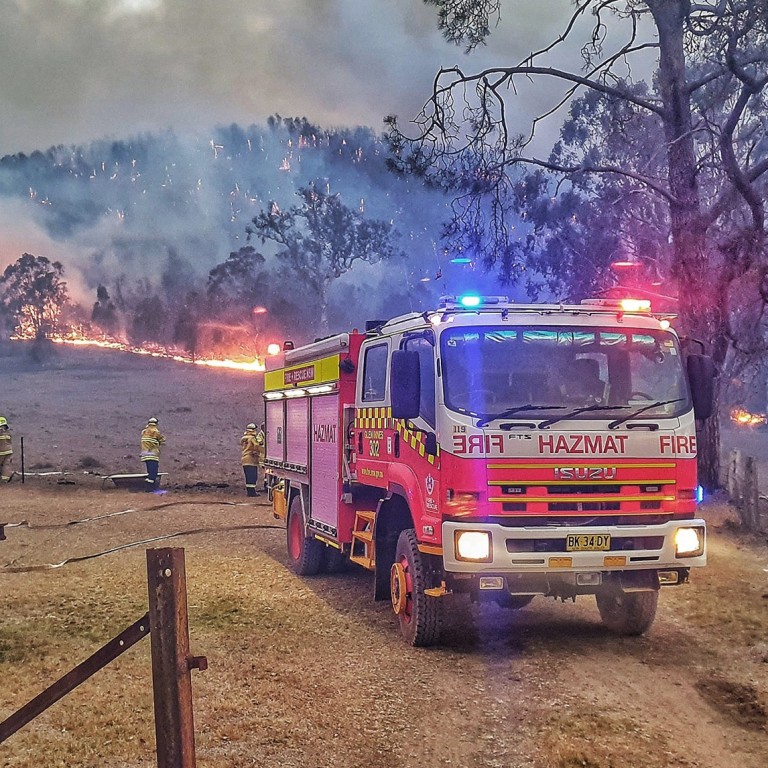
Australian firefighters battle 100 blazes and it’s not summer yet
- The fires in the states of Queensland and New South Wales, many out of control, have destroyed at least 20 properties
- The spring fire conditions offer a sobering warning about the potential danger in coming months
Australian firefighters battled more than 100 bush fires across two eastern states on Sunday as authorities warned that parts of the country could expected a severe bush fire season this summer.
“We’ve never seen this before in recorded history, fire weather has never been as severe this early in spring,” said Andrew Sturgess, an inspector with the Queensland Fire and Emergency Services (QFES).
The fires in the states of Queensland and New South Wales, many out of control, have destroyed at least 20 properties, with authorities saying that number is likely to increase once damaged areas can be inspected.
No deaths have been reported, but a 66-year-old volunteer firefighter remains in a critical condition in hospital after sustaining serious burns on Friday.
In Queensland 71 fires were burning on Sunday, although none posed an immediate threat to major population centres. In New South Wales, parts of which are facing the worst drought in living memory, 57 fires were burning, with the largest having burnt through more than 56,000 hectares (138,000 acres) of land.
We’ve never seen this before in recorded history
Weather officials said they did not expect a reprieve from the hot and windy conditions fanning the fires until Wednesday and there is little chance of rain.
Sturgess said the dangerous spring fire conditions should be considered an “omen” or “warning” of the damage bush fires may cause in the north eastern state over the summer months of December, January and February.
Australia’s east coast has endured two years of below average rainfall, creating drought conditions in wide parts of the country.

